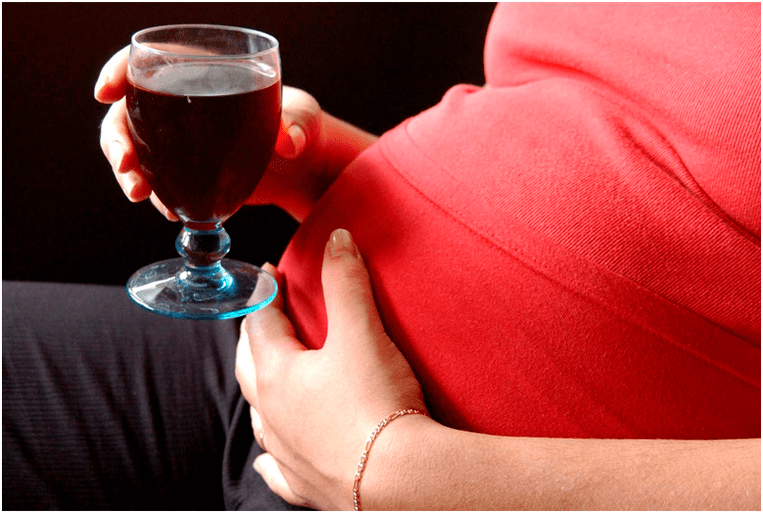Notorious British psychotherapist David Nutt was not only famous for his scientific achievements, but also for his habit of expressing his thoughts and beliefs directly, without unnecessary innuendo, and he believed that there was no substance more dangerous than alcohol. Ethanol surpasses many poisons and narcotic substances in terms of destructive effects, yet for some reason most people consider an evening drinking habit to be normal.
Of course, when alcoholism crosses social boundaries and a person slips into the abyss and begins to live a marginalized lifestyle, it's considered a slow suicide, but are most people really so picky about so-called domestic drunkenness? A glass or two of wine with dinner, a bottle of beer at a football match, or 100 grams of liquor when meeting friends are considered just as appropriate as drinking tea, but such habits can end up with just as serious consequences. Drinking alcohol for a long time. Is alcohol really that dangerous, or is it just a stereotype? Let's take a look at the opinions of scientists.
The harm of alcohol to the human body: a brief introduction to the main
So, what are the main dangers of alcohol? Harmless in its deceptive! California scientists claim small amounts of ethanol are perfectly safe. Granted, they're subtly silent about where "Little" ends and "Drunk" begins. It was also impossible to find information on who funded these studies, as they were not published in any reputable scientific journal, which would require all experimental protocols and sponsor data. Is it because representatives of the alcohol industry are leading the way? It's still just guesswork.
At the same time, this dependence does not arise by itself - most often, alcoholism is precisely the habit of drinking a bottle of wine at moments of special joy and sorrow in the circle of friends and relatives. And we're not talking about notorious alcoholics who can't live without a bottle of cheap wine - those who ruin their health on a daily basis have enough in intellectual circles.
It's hard to find a more insidious liquid than alcohol. It acts on the brain like serotonin (the natural hormone of happiness), causing an imagined sense of well-being and high spirits. It is this influence that leads to the emergence of a habit—instead of learning to enjoy life to the fullest, it is better to cover the mind with happy substitutes.

However, this effect is quickly replaced by a more unpleasant one - a total loss of control over one's emotions and behavior, making the drunk "appear radiant". Some act aggressive, some start crying for no reason, some act overly cute. . . There are many forms of drunkenness, but from the outside, none of them look attractive.
Plus, misbehavior is far from the worst partner a drunk can make. According to statistics, more than half of road traffic accidents and one third of suicides occur while intoxicated. With each drink, the number of cells in the cerebral cortex gradually decreases, but this irreversible effect is not immediately apparent. Look into the eyes of someone who's been a longtime drinker, and drinks regularly - where sound thinking, social norms, and human perception are gradually replaced by banal animal instincts and the desire for the bottle. Moreover, the process is irreversible—if the damaged liver can be healed even a little bit, the cerebral cortex is not restored. Australian scientists have demonstrated that even those who drink moderately 2-3 times a week, the size of the brain gradually decreases and its function declines due to atrophy. On average, 200ml of a 40-degree strong drink will kill 1000-2000 cells. Keep this in mind when pouring another glass!
The dangers of alcohol for men

Like any addictive substance, alcohol works surreptitiously - at first you won't notice any changes and unpleasant health consequences, but over time, when you can't refuse a drunk glass, you'll figure it out yourselfHow deceptive the first impression is. Even some drinkers' belief that a bottle can help them relax and relieve stress is nothing but self-deception. This feeling leads to a paralysis of attention and self-control centers - alcohol entering the bloodstream affects brain centers and simulates a feeling of euphoria, which overshadows all other sensations and dulls rational perception of reality. The same goes for marijuana or marijuana. Why is it that even kids know the dangers of drugs, but alcohol is considered indulgence? no answer. . .
Furthermore, brutal and masculine stereotypes about strong sexuality imposed by the media and advertisements are directly related to the use of alcoholic beverages. A glass of beer, whiskey or rum is considered a noble pastime for a true gentleman, but it is not. Yes, the glass is invisible at first, but with each sip the blood vessels and capillaries become weaker and less elastic, and the heart works at half its strength. This means that after several years of regular "evening drinks" blood circulation will inevitably be disturbed with impotence as a result, which cannot be eliminated even with the help of modern potency regulators - any of these drugs areAlcohol is strictly limited. So remember, dear men: by toasting glass after glass, you're depriving yourself of an important aspect of living life to the fullest.
Harm of alcohol to women's body
Alcoholism is much worse for women than for men. Although ethanol has equally destructive effects on the organisms of both sexes, women's physiology is much weirder: women's vulnerability, emotionality, and psychological sensitivity are legitimate biological traits, meaning their illusions of happiness and calmmore dependencies. hurry up. In order to avoid the problem of alcohol forgetting, the ladies get drunk faster, because the body cannot resist this attachment, and the specificity of the mind prevents the mind from overcoming the desire for the wine glass.
Additionally, women's livers are less able to filter ethanol, meaning it breaks down faster under the influence of alcohol. Statistics show that the first signs of cirrhosis appear on average after 5 years of alcohol dependence in women and 7 years in men. Although the difference is small, it clearly shows that women are physically more sensitive to alcohol a priori than men.

What are the dangers of drinking alcohol during pregnancy?
A pregnant woman is a sacred vessel in which the life of an unborn baby is hidden. Unfortunately, not every woman perceives her pregnancy status this way. Modern trends dictate new rules: today, "status" ladies refuse nothing, including a glass of red wine, which a gynecologist allegedly advised them to relieve body tension and relax the whole body. Who issued these doctors' medical education diplomas? What are the guidelines for gynecologists when recommending this product to pregnant women? There are many proven and safe ways to relieve stress, such as fresh air, meditation, simple yoga poses or walking in nature. What happened to the alcohol?
Studies by the American Association have shown that newborn deaths of alcoholic mothers are five times higher than those of nondrinking mothers. And it's not alcohol addiction, it's the notorious "cultural drinking", otherwise known as everyday drunkenness. Ethanol can even affect the fetus in the womb, causing hypoplasia, mental retardation and other diseases that will accompany the child throughout his life! Was his pain worth the imagined pleasure of a mother who couldn't refuse a glass of wine?
The Federal Center for Medicine and Biology conducted an interesting experiment on the effect of alcohol vapors on embryos. 160 eggs were laid in the incubator, and an ethanol steam generator was installed indoors. As a result, half of the embryos did not form at all, while of the remaining 80 embryos, 40 died in the first day after birth, and another 25 had severe deformities - for example, no beak, no wings, Or improperly shaped legs. worth considering!
The dangers of alcohol on the body of teenagers
There isn't and can't be an inborn need to drink -- children learn this by watching their families and loved ones. If the advertising, sale and consumption of alcohol are banned on the same day, children will not feel deprived or inferior, and will not develop the desire to try alcoholic products. Come adolescence, however, and the statistics change dramatically: more than 60 percent of modern teens try alcohol by age 15, and by most ages, that number reaches 90.
Studies of our scientists Bratusya and P. I. Sidorova have shown that even at kindergarten age, children easily reproduce the drinking process and the state of intoxication. If you ask kids to play a wedding, birthday, or party trip, they'll automatically clink glasses, pour wine, and toast. Thus, a stereotype has developed that alcohol is a companion to celebration and entertainment, a symbol of a carefree, happy adult life. This is where teenage alcoholism begins.

What harm does alcohol do to today's teens?
Today's teens see alcohol as a secondary, idle pastime that allows you to get over your first disappointment, deal with the awkwardness of a first date, or just hang out with friends. However, even a low-alcohol drink such as a glass of beer or home-made wine can be enough to intoxicate a fragile body and spin it out of control.
For teens, drinking is a false sense of self-affirmation and an opportunity to feel more mature, relaxed and courageous. Using alcohol to paint yourself as a "bad guy" or a "bad girl" for this is as easy as peeling a pear, but is everything as innocuous as it seems? Destructive behavior, attempts to appear more mature, megalomania, and hysteria are far from the worst companions for teenage drinking. Most young adults lose their temper after a drink, gradually succumbing to a vicarious euphoria. This is how attachment arises, and given the fact that the body as a whole and especially the mind are not yet fully formed during adolescence, overcoming an addiction that has developed will be much more difficult than in adults.
The dangers of alcohol on the body: the results
The figures from the World Health Organization leave no room for doubt: Alcohol consumption is linked to every third premature death. Some drink until their bodies are completely destroyed, some have accidents under the influence of ethanol, some lose self-control and injure themselves. Today, however, consciously choosing a sober lifestyle is not so simple: successful men and women watch us from TV screens, billboards and their own smartphones with a glass of wine, and only a smallIn small, almost imperceptible font is a footnote: "Excessive drinking endangers our health, " to comply with the law.
This massive advertising has a simple explanation: the profitability of the alcohol industry is estimated in the billions, and each potential consumer is another opportunity to fill their stomachs. To resist this kind of propaganda, it is enough to think in your own head and worry about your health. The atomic bombing of Hiroshima killed 200, 000 people, and alcohol kills about 1. 5 million people a year. That's all the math. . .
6 Reasons to Quit Alcohol
A glass of wine is often offered to relieve stress and emotional difficulties. At the same time, alcohol can be the root of many problems. We tell you why it's better not to drink.
alcohol is a depressant
Alcohol is often called an antidepressant, but it's not. It relaxes the body for only a short time and improves mood by increasing the pleasure hormone dopamine. But then, the body adapts to the hormone production and requires more and more of it to be effective. In addition, tetrahydroisoquinoline is formed, a substance that blocks the production of dopamine and serotonin. A person stops enjoying life without stimulation and falls into a depressed mood. Thousands of neurons are destroyed beyond recovery.
After a short-term increase in mood, aggression and apathy increase. Alcohol can cause insomnia, increase anxiety and, with long-term use, lead to neurological disorders, scientists say.
After two weeks of abstinence from alcohol, the negative impact on mood decreases and within a month is almost completely eliminated - a person regains mental function, normalizes mood, increases vitality and motivation.
Alcohol affects appearance
Regular use of alcohol can make the skin lose its elasticity due to dehydration. This can lead to premature aging and cosmetic problems: redness and swelling, graying of the complexion, bruising and wrinkles. Elevated cholesterol in the blood, causing red streaks to appear in the whites of the eyes. When a person stops drinking, most bodily functions gradually return, which has a positive effect on appearance. This will take anywhere from a few weeks to several years, depending on the duration of the drinking.
alcohol leads to overeating
Ethanol stimulates a specific AGRP protein called "obesin. "It can significantly increase appetite, leading to binge eating, even if a person is full of energy and does not want to eat. A glass of wine habit can help slow down your metabolism, so it's best to replace alcohol with healthy beverages.
alcohol causes disease
Alcohol is a cause of cirrhosis and hepatitis due to inflammation and scarring of liver tissue. It actively destroys the pancreas and contributes to a predisposition to diabetes. The intestinal wall is destroyed under the influence of alcohol, the structure of cells changes, they no longer fully absorb useful substances, which affects the immune system and general health. Alcoholic beverages can adversely affect most organs. In the stomach, the production of mucin - a substance that protects the mucous membranes from irritation - is inhibited. Without it, the stomach is prone to gastritis and peptic ulcers.
After clearing the body of alcohol, the gut microbiota gradually recovered over a week. By the way, women excrete alcohol 20-25% slower than men. If a person stays awake for two weeks, his thinking will be clear, his blood pressure will be normal, his heart rate will be stable, and his shortness of breath and headache will disappear.
Finance costs unchanged
A less obvious but pleasant consequence of quitting alcohol is savings. High tariffs were imposed on the raw materials for brewing, so ready-made drinks were mainly purchased from abroad to the country. Alcohol prices keep going up and if you're drinking high quality (others aren't worth it) then it's going to hit the budget. Even if you spend an average of about a glass of wine and dinner each month, you can save a ton of money. Add in the cost of doctor visits and the purchase of medicines and cosmetics, and these costs are much less if you lead a healthy lifestyle.
risk of alcoholism
Alcoholism seems to only happen to vulnerable people. In reality, it's not always an obvious disease with external signs. Early alcoholics can continue to have an active social life, go to work, care for loved ones, and hang out with friends. Alcoholism occurs regardless of standard of living, wealth and education. At the same time, at first glance, there are malfunctions in the work of the body and mind that are not obvious. Therefore, it is especially important to control this habit and monitor your health to avoid irreversible consequences. Also, the sooner a person stops drinking, the sooner most of the resulting problems will resolve.
What if it's just a little bit?
You'll often find the point that drinking alcohol in small doses is good for your health. Doctors from the American Heart Association dispute this theory. Over the course of six years, they observed about 5, 000 volunteers, half of whom drank a little regularly — just a glass of wine or a tall beer in the evening. According to the general health indicators, these individuals are at increased risk of diseases of the cardiovascular system, including an increased likelihood of atrial fibrillation, the experts noted.































